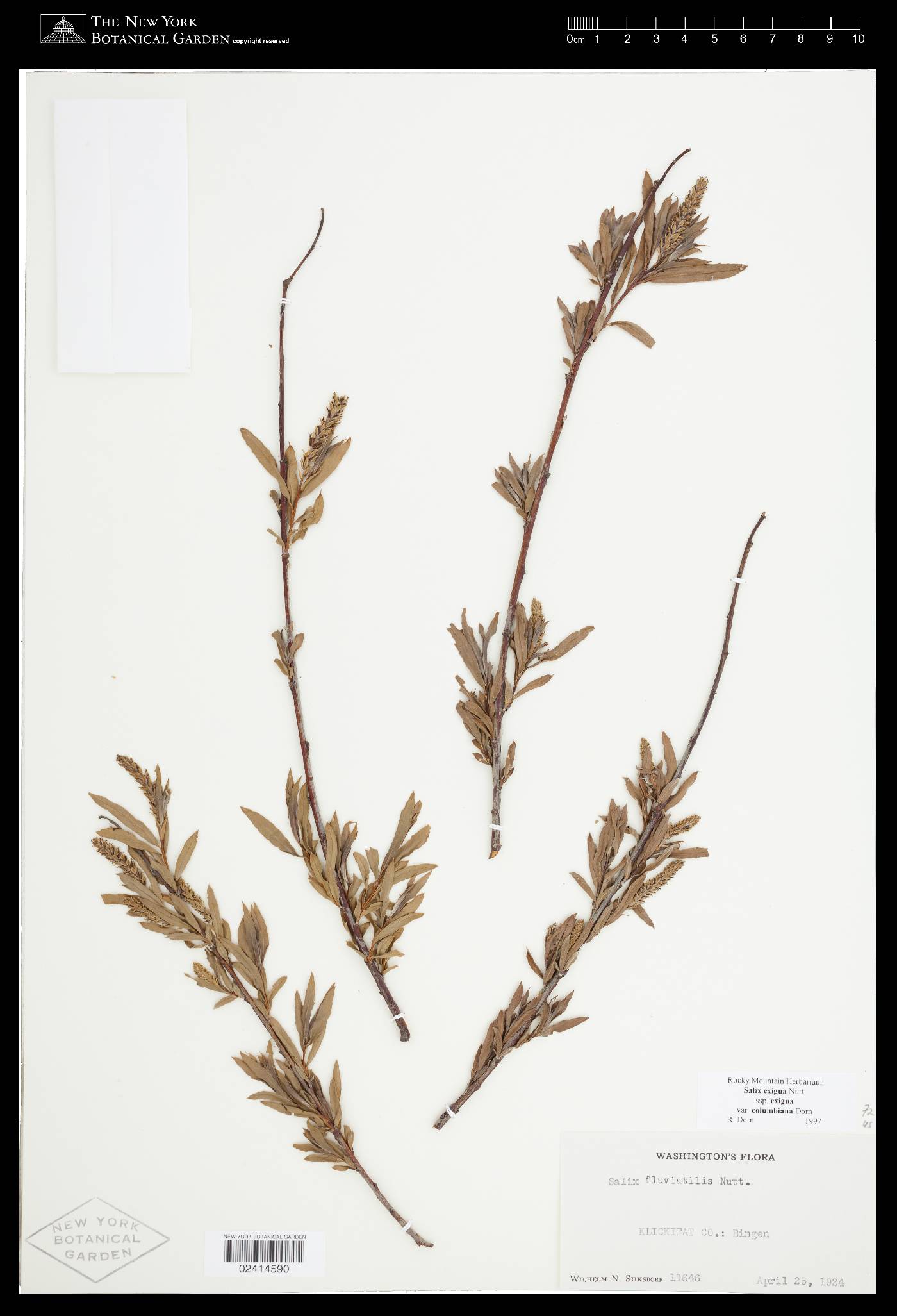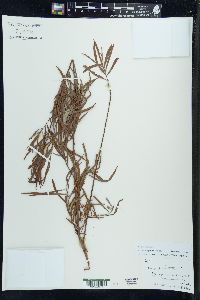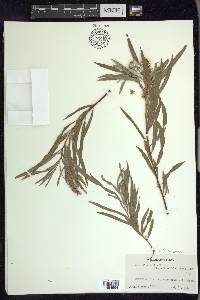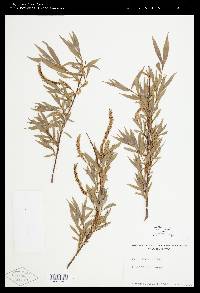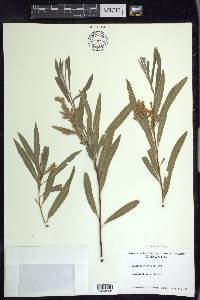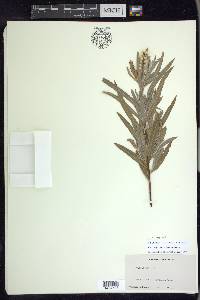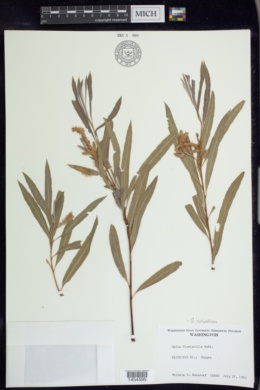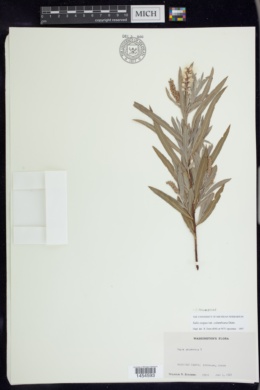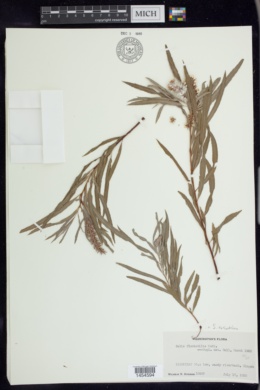
|
|
|
|
Family: Salicaceae
|
Shrubs, 2-6.5 m. Stems: branches red-brown, glabrous or hairy at nodes; branchlets yellow-brown or red-brown, pubescent, puberulent, or glabrous, (hairs appressed, straight or wavy). Leaves: stipules usually absent or rudimentary, sometimes foliaceous on early ones (apex acute), rudimentary or foliaceous on late ones; petiole 2-5 mm, short-silky adaxially; largest medial blade (sometimes hypostomatous, glands marginal), linear or very narrowly elliptic, 58-115 × 5-17 mm, 5.7-12.8 times as long as wide, base acute or cuneate, margins flat to slightly revolute, remotely spinulose-serrulate or sinuate, apex acuminate, abaxial surface glaucous (sometimes obscured by hairs), sparsely to very densely short- or long-silky, hairs appressed to slightly spreading, straight, adaxial dull, pubescent or long-silky; proximal blade margins entire or remotely denticulate; juvenile blade color obscured by hairs, densely short-silky abaxially. Catkins: staminate 20-83 × 5-13 mm, flowering branchlet 6-125(-200) mm; pistillate densely to moderately densely flowered, slender or stout, 35-90 × 5-12 mm, flowering branchlet 11-160 mm; floral bract 1.4-4 mm, apex acute, rounded, retuse, or truncate, entire or toothed, abaxially hairy throughout or proximally, hairs straight or wavy. Staminate flowers: abaxial nectary 0.3-0.9 mm, adaxial nectary narrowly oblong, oblong, ovate, or flask-shaped, 0.5-1 mm, nectaries distinct or connate and shallowly cup-shaped; filaments hairy on proximal 1/2, throughout, or basally; anthers 0.8-1.3 mm. Pistillate flowers: (abaxial nectary 0.3-0.4 mm), adaxial nectary narrowly oblong, ovate, or flask-shaped, 0.4-1.3 mm, longer than stipe, nectaries distinct or connate and shallowly or partially cup-shaped; stipe 0.2-0.7 mm; ovary pyriform, long-silky, beak abruptly tapering to styles; ovules 18-30 per ovary; styles 0.1-0.2(-0.4) mm; stigmas flat, abaxially non-papillate with rounded tip, or broadly cylindrical, (0.3-)0.5-1.1 mm. Capsules 3.4-5.6 mm. 2n = 38. Flowering May-late Jul. Riparian, sandy-silty to sandy gravel floodplains, old beach dunes, rocky fill along streams; 5-40 m; Oreg., Wash. Hybrids: Salix columbiana forms natural hybrids with S. exigua var. exigua and S. sessilifolia. Both hybrids are reported from Oregon and Washington (R. D. Dorn 1998).
|
This project was made possible in part by the Institute of Museum and Library Services [MG-70-19-0057-19].
Powered by Symbiota

